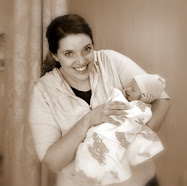ScienceDaily (Aug. 15, 2011) — A newborn baby's weight loss is often used to determine how well a baby is breastfeeding, and concern about a baby which loses too much weight may result in supplementing breastfeeding with formula. However, many women receive IV fluids during labor, and new research published in BMC's open access journalInternational Breastfeeding Journal shows that some of a newborn's initial weight loss may be due to the infant regulating its hydration and not related to a lack of breast milk.
See Also:
A group of Canadian researchers looked at relationships among the IV fluids a mother received during labor (or prior to her caesarean section), neonatal output (measured by diaper weight), and newborn weight loss. They found that during the first 24 hours following birth there was a positive association both between the IV fluids given to mothers before birth and neonatal output, and between the neonatal output and newborn weight loss. At 60 hours post birth, the time of the average lowest weight, there was a positive relationship between maternal IV fluids and newborn weight loss.
"Nurses, midwives, lactation consultants, and doctors have long wondered why some babies lose substantially more weight than others even though all babies get small amounts to eat in the beginning," said principal investigator Prof Joy Noel-Weiss from the School of Nursing at the University of Ottawa's Faculty of Health Sciences. "It appears neonates exposed to increased fluids before birth might be born overhydrated, requiring the baby to regulate his or her fluid levels during the first 24 hours after birth."
Prof Noel-Weiss added, "We should reconsider the practice of using birth weight as the baseline when calculating newborn weight loss in the first few days following birth. For mothers and their breastfed babies, accurate assessment of weight loss is important. Although more research is needed, based on our findings, we would recommend using weight measured at 24 hours post birth as a baseline."
Alongside this article, the researchers have provided a standardized method for clinicians to collect and analyze data about newborn weight loss in their own maternity site, in the hope that this protocol will help them to make informed decisions when assessing newborn weight changes.
Email or share this story:
Story Source:
The above story is reprinted (with editorial adaptations by ScienceDaily staff) from materials provided by BioMed Central, via EurekAlert!


